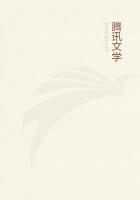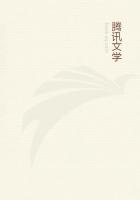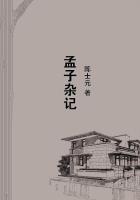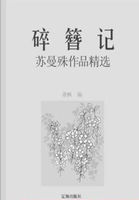The stoical summary of the whole duty of man, "Live according to nature," would seem to imply that the cosmic process is an exemplar for human conduct. Ethics would thus become applied Natural History. In fact, a confused employment of the maxim, in this sense, has done immeasurable mischief in later times. It has furnished an axiomatic foundation for the philosophy of philosophasters and for the moralizing of sentimentalists. But the Stoics were, at bottom, not merely noble, but sane, men; and if we look closely into what they really meant by this ill-used phrase, it will be found to present no justification for the mischievous conclusions that have been deduced from it.
In the language of the Stoa, "Nature" was a word of many meanings.
There was the "Nature" of the cosmos and the "Nature" of man. In the latter, the animal "nature," which man shares with a moiety of the living part of the cosmos, was distinguished from a higher "nature."
Even in this higher nature there were grades of rank. The logical faculty is an instrument which may be turned to account for any purpose. The passions and the emotions are so closely tied to the lower nature that they may be considered to be pathological, rather than normal, phenomena. The one supreme, hegemonic, faculty, which constitutes the essential "nature" of man, is most nearly represented by that which, in the language of a later philosophy, has been called the pure reason. It is this "nature" which holds up the ideal of the supreme good and demands absolute submission of the will to its behests. It is which commands all men to love one another, to return good for evil, to regard one another as fellow-citizens of one great state. Indeed, seeing that the progress towards perfection of a civilized state, or polity, depends on the obedience of its members to these commands, the Stoics sometimes termed the pure reason the "political" nature. Unfortunately, the sense of the adjective has undergone so much modification, that the application of it to that which commands the sacrifice of self to the common good would now sound almost grotesque.
But what part is played by the theory of evolution in this view of ethics? So far as I can discern, the ethical system of the Stoics, which is essentially intuitive, and reverences the categorical imperative as strongly as that of any later moralists, might have been just what it was if they had held any other theory; whether that of special creation, on the one side, or that of the eternal existence of the present order, on the other. To the Stoic, the cosmos had no importance for the conscience, except in so far as he chose to think it a pedagogue to virtue. The pertinacious optimism of our philosophers hid from them the actual state of the case. It prevented them from seeing that cosmic nature is no school of virtue, but the headquarters of the enemy of ethical nature. The logic of facts was necessary to convince them that the cosmos works through the lower nature of man, not for righteousness, but against it. And it finally drove them to confess that the existence of their ideal "wise man" was incompatible with the nature of things; that even a passable approximation to that ideal was to be attained only at the cost of renunciation of the world and mortification, not merely of the flesh, but of all human affections. The state of perfection was that "apatheia"in which desire, though it may still be felt, is powerless to move the will, reduced to the sole function of executing the commands of pure reason. Even this residuum of activity was to be regarded as a temporary loan, as an efflux of the divine world-pervading spirit, chafing at its imprisonment in the flesh,-until such time as death enabled it to return to its source in the all-pervading logos.
I find it difficult to discover any very great difference between Apatheia and Nirvana, except that stoical speculation agrees with pre-Buddhistic philosophy, rather than with the teachings of Gautama, in so far as it postulates a permanent substance equivalent to "Brahma" and "Atman;" and that, in stoical practice, the adoption of the life of the mendicant cynic was held to be more a counsel of perfection than an indispensable condition of the higher life.
Thus the extremes touch. Greek thought and Indian thought set out from ground common to both, diverge widely, develop under very different physical and moral conditions, and finally converge to practically the same end.
The Vedas and the Homeric epos set before us a world of rich and vigorous life, full of joyous fighting men That ever with a frolic welcome took The thunder and the sunshine .... and who were ready to brave the very Gods themselves when their blood was up. A few centuries pass away, and under the influence of civilization the descendants of these men are "sicklied o'er with the pale cast of thought"--frank pessimists, or, at best, make-believe optimists. The courage of the warlike stock may be as hardly tried as before, perhaps more hardly, but the enemy is self. The hero has become a monk. The man of action is replaced by the quietist, whose highest aspiration is to be the passive instrument of the divine Reason. By the Tiber, as by the Ganges, ethical man admits that the cosmos is too strong for him; and, destroying every bond which ties him to it by ascetic discipline, he seeks salvation in absolute renunciation.
Modern thought is making a fresh start from the base whence Indian and Greek philosophy set out; and, the human mind being very much what it was six-and-twenty centuries ago, there is no ground for wonder if it presents indications of a tendency to move along the old lines to the same results.















